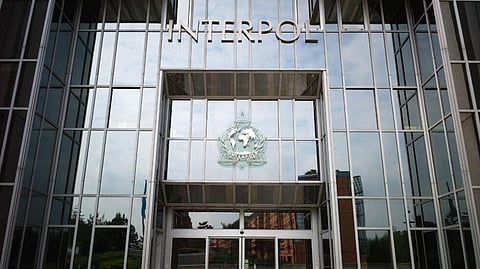
- NEWS
- the EDIT
- COMMENTARY
- BUSINESS
- LIFE
- SHOW
- ACTION
- GLOBAL GOALS
- SNAPS
- DYARYO TIRADA
- MORE

Once the International Criminal Police Organization (Interpol) issues Red Notices for suspects in crimes against humanity cases in connection with the war on drugs, the Philippine National Police would not make immediate arrests.
A Red Notice is a request to law enforcers worldwide to locate and provisionally arrest a wanted person pending extradition or surrender.
The Department of Justice (DoJ) clarified that such a notice from Interpol on behalf of the International Criminal Court (ICC), which is investigating the drug war during the previous Duterte administration, will have to be subjected to local court processes.
Justice Undersecretary Raul Vasquez said in a radio interview the Philippines, as an Interpol member state, is obligated to cooperate with the global organization but this can be questioned in the local courts.
Local courts retain jurisdiction
He said a local court can step in and investigate the manner of cooperation and whether or not the implementation of a warrant or a Red Notice is valid.
Member countries apply their domestic laws in implementing an arrest.
Vasquez said it’s the call of local courts whether or not an arrest order from an international body is valid and if the crime being alleged is in agreement with the country’s laws.
Interpol processes can be “abused by a requesting state as a tool for repression, discrimination and political persecution, and those are issues a Philippine court might be asked to consider,” the DoJ official said.
“’All parties involved can avail of our judicial processes,” he added.
He said Interpol would also have to determine if a request for a Red Notice is within its mandate.
Rumors have circulated the ICC might issue arrest warrants for former President Rodrigo Duterte and other personalities involved in the brutal anti-drug campaign during his administration.
Vasquez earlier this month said the DoJ had no information on that.
He reiterated the government’s position of non-cooperation with the ICC since the Philippines had left the court in 2019, but it will have to consider an Interpol action since the country is a member of the international body.
“Representatives of international bodies are supposed to register with the government when they enter the country and no ICC personnel have done that,” according to Vasquez.
He said if ICC personnel had entered the country to conduct an investigation they did so as tourists.
The DoJ had previously said it would not assist, but neither would it stop, the ICC from conducting an investigation and interviewing witnesses in connection with the Duterte drug from 2016 to 2022.
